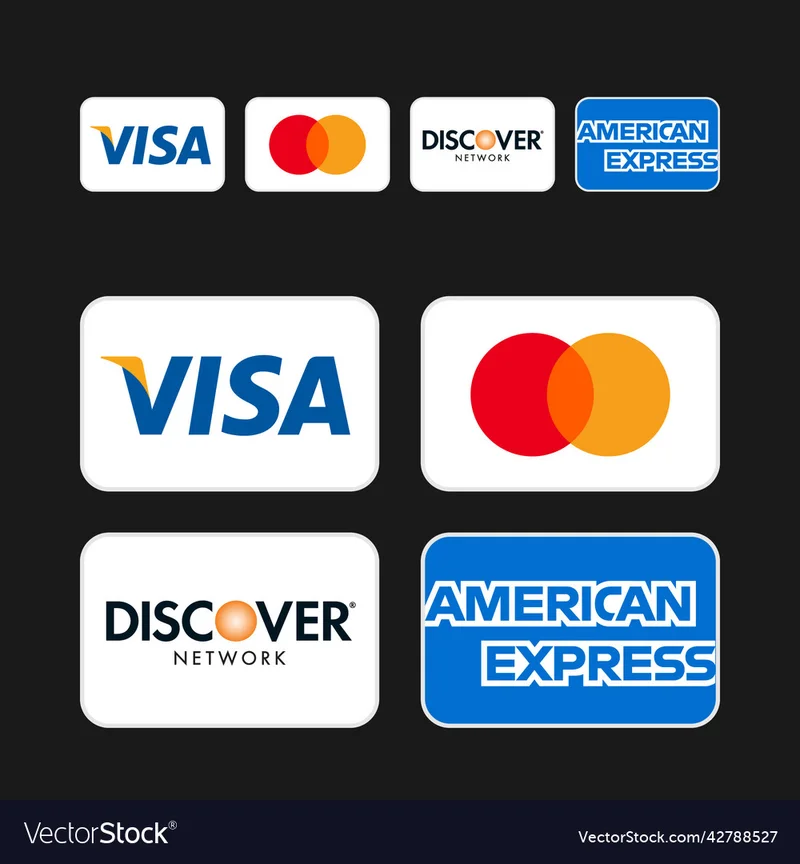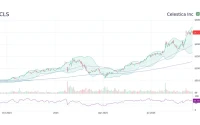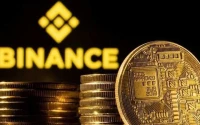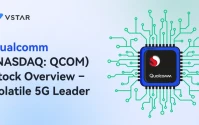Here we go. Another Tuesday, and Wall Street is doing what it always does: obsessing over the decimal points. Futures are down a tick, UPS is expected to report $1.31 per share, Nucor beat estimates but guided lower. It’s the familiar, frantic rhythm of the market, a cacophony of short-term bets and after-hours trades that fills the airwaves and financial blogs with reports such as Visa, PayPal And 3 Stocks To Watch Heading Into Tuesday - Nucor (NYSE:NUE).
And in the middle of all that noise, something truly monumental happened. Something that isn't about this quarter's revenue but about the architecture of the next decade. While everyone was watching stock tickers, Visa, in partnership with Cloudflare, quietly unveiled a key that could unlock the next evolution of the internet. They didn't just announce a new product; they laid down a foundational paving stone for the future of artificial intelligence. And almost no one seemed to notice.
When I first saw the announcement, buried between analyst ratings and earnings forecasts, I honestly just sat back in my chair, speechless. This is the kind of breakthrough that reminds me why I got into this field in the first place. It’s a quiet revolution, happening right under our noses.
The Wild West of the AI Web
First, you have to understand the problem we’re facing. It’s a big one. Imagine the internet is a massive, bustling city. For years, the traffic was mostly people—you, me, browsing, shopping, connecting. But over the last year, a new kind of visitor has flooded the streets: AI agents. And they are arriving in unbelievable numbers.
Visa’s own data says AI-driven traffic to retail websites has surged by over 4,700% in the past year. That’s not a typo. Four. Thousand. Seven. Hundred. Percent. This is a tidal wave of non-human traffic, and right now, it’s absolute chaos—it's the digital equivalent of a million self-driving cars, delivery drones, and autonomous tourists all descending on Times Square at once without any traffic lights or road rules.
For any online merchant, this is a nightmare. How do you distinguish a helpful AI shopping assistant trying to find the best deal for its user from a malicious bot trying to scrape your prices, steal your inventory data, or launch an attack? How do you welcome the future without opening the door to chaos? Until now, the answer has been a messy collection of digital walls, CAPTCHAs, and blunt-force blocking that often penalizes legitimate users. It’s a clumsy, unsustainable defense against a force that’s only growing more sophisticated. What does a merchant do when the very thing that could supercharge their business—AI-driven commerce—is indistinguishable from the thing that could destroy it?

A Passport for Our Digital Selves
This is where Visa’s announcement changes the entire game. They’ve launched something called the "Trusted Agent Protocol." I know, it sounds like dry, technical jargon. But what it represents is a paradigm shift.
Let me break it down. The Trusted Agent Protocol is, in essence, a digital passport for AI. In simpler terms, it’s a standardized way for an AI agent to arrive at a website and say, “Hello, I’m a legitimate agent working on behalf of a human, my intentions are good, and I have credentials to prove it.” It allows merchants to instantly verify an AI, to distinguish a trusted friend from a malicious stranger.
This is the digital handshake we’ve been desperately waiting for. Think about it like the invention of the SSL certificate—that little padlock icon in your browser bar. Before SSL, e-commerce was a risky, niche activity. You never knew if you could trust a website with your credit card. The SSL protocol created a layer of verifiable trust that unleashed the entire digital economy we know today. What Visa and Cloudflare are building is the SSL for the AI era. The speed of this is just staggering—it means the gap between a chaotic, bot-filled internet and an intelligent, agent-driven one is closing faster than we can even comprehend.
This isn't just about stopping bad bots. It's about enabling good ones. It’s about creating a world where you can tell your personal AI, "Find me a flight to Tokyo for next spring, book the best hotel near the Ginza district with a gym, and order those noise-canceling headphones I like so they arrive before I leave." And then your AI can go out and have trusted, secure, and authenticated conversations with the AIs of airlines, hotels, and retailers to make it happen. Without this protocol, that future is a security minefield. With it, it becomes possible.
Of course, this raises profound questions of governance and control. Who gets to issue these AI passports? Who decides what constitutes a "trusted" agent? We're placing an immense amount of power in the hands of these gatekeepers, and that's a responsibility we need to discuss openly and thoughtfully as this technology rolls out. But the first step—creating the framework itself—is the most critical, and it has now been taken.
This Is More Than Just a Feature
So while Wall Street debates whether Visa's stock is a "Buy" at a $450 price target, they're missing the forest for the trees. This isn't about next quarter's earnings. This is about building the fundamental trust layer for the next generation of the internet—an internet where humans and our AI agents collaborate seamlessly and securely.
Visa just told the world they aren't just a payments company anymore. They're an identity and trust company for the AI age. They’re building the roads and the traffic signals for a city that doesn't fully exist yet, but is being built at lightning speed all around us. And that, my friends, is a story far more valuable than any single day's stock chart.









